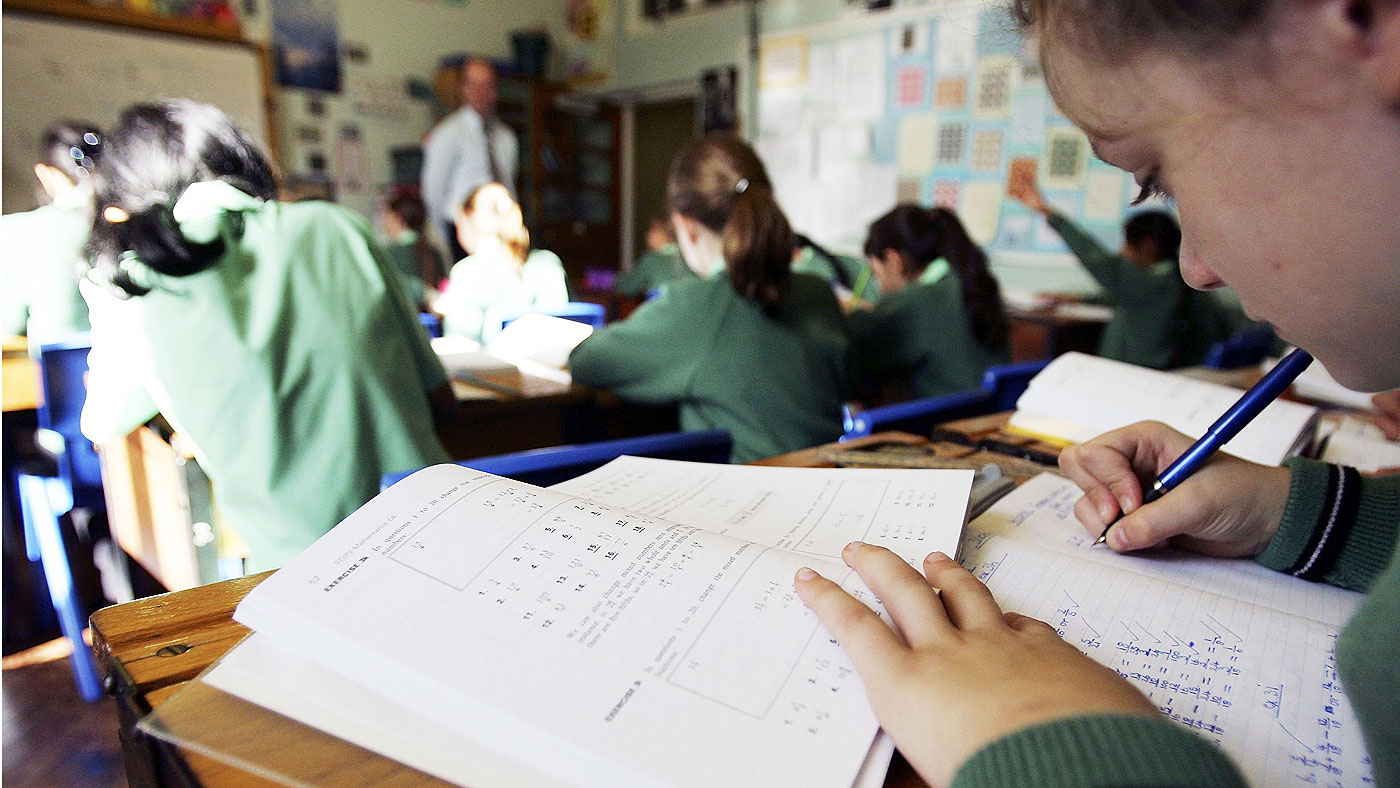Justine Greening says grammar schools must do more for 'ordinary working families'
Labour accuse Education Secretary of 'cooking the books' in argument for selective schools

A free daily email with the biggest news stories of the day – and the best features from TheWeek.com
You are now subscribed
Your newsletter sign-up was successful
Justine Greening says a new generation of grammar schools must do more to increase intake from "ordinary working families".
Speaking at St Mary’s University in Twickenham, the Education Secretary said the government was planning a new "model" for selective schools that would be "truly open for all".
She added: "To be clear, this isn't about creating brand new labels for our families and our children. It isn't about singling out some for support whilst leaving others alone.
The Week
Escape your echo chamber. Get the facts behind the news, plus analysis from multiple perspectives.

Sign up for The Week's Free Newsletters
From our morning news briefing to a weekly Good News Newsletter, get the best of The Week delivered directly to your inbox.
From our morning news briefing to a weekly Good News Newsletter, get the best of The Week delivered directly to your inbox.
"But we do want to start to provide a clearer analysis of the situation, of how the children of ordinary working people are faring in our education system and for measuring how our wider reforms can do better for these families – and so better for the country."
Government figures show more than 50 per cent of grammar school pupils are from families with above-average incomes and fewer than one in ten come from the most disadvantaged backgrounds.
Labour argues this is evidence that grammar schools do not support social mobility.
Greening was speaking as the Department for Education launched a consultation exercise to "better understand the needs of ordinary working families", which it defines as those living on "modest incomes", rather than the poorest families.
A free daily email with the biggest news stories of the day – and the best features from TheWeek.com
It "amounts to the first attempt by ministers to define the 'just about managing families' May had said her government would champion", says The Guardian.
According to the Daily Telegraph, the phrase "ordinary working families" denotes "families which are not captured by traditional measures of deprivation but whose household income is below the national average."
But the government's definition of has come under attack, with the Daily Mirror saying it "excludes the more than 13 per cent of secondary school pupils eligible for free school meals".
The Guardian agrees, saying the government "has managed to come up with a definition of ordinary working people that excludes the very poor but covers a third of children, most of whom will be living in the Conservative-voting constituencies rather than the Labour inner cities".
Shadow education secretary Angela Rayner said the government’s definition was a way of hiding the full picture.
She said: "In effect, they have not been able to find the evidence to back up their ideological policy, so they’ve created some themselves, they’ve cooked the books."
Adam Bienkov of Business Insider also criticised the plan, saying: "There is simply no way to argue that grammar schools improve social mobility without ignoring the statistics and relying solely on anecdotes.
"Greening has a solution to this problem - simply ignore the poorest children."
-
 The ‘ravenous’ demand for Cornish minerals
The ‘ravenous’ demand for Cornish mineralsUnder the Radar Growing need for critical minerals to power tech has intensified ‘appetite’ for lithium, which could be a ‘huge boon’ for local economy
-
 Why are election experts taking Trump’s midterm threats seriously?
Why are election experts taking Trump’s midterm threats seriously?IN THE SPOTLIGHT As the president muses about polling place deployments and a centralized electoral system aimed at one-party control, lawmakers are taking this administration at its word
-
 ‘Restaurateurs have become millionaires’
‘Restaurateurs have become millionaires’Instant Opinion Opinion, comment and editorials of the day